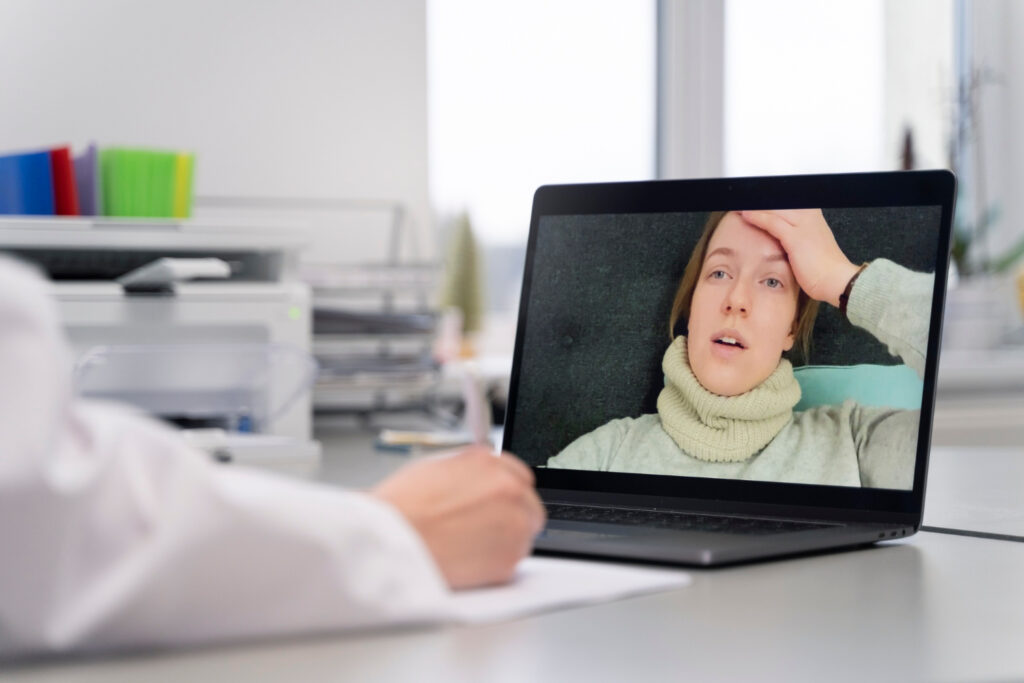Telepsychiatry has already made significant strides in improving access to mental health care, but the future promises even more innovative approaches to remote psychiatric services. The next level of telepsychiatry is poised to revolutionize mental health care delivery, offering new technologies and methods that enhance the patient experience and outcomes. Let’s explore some of the exciting developments that are taking telepsychiatry to the next level:
1. Virtual Reality Therapy: Virtual reality (VR) therapy is emerging as a powerful tool in mental health care. By immersing patients in virtual environments, VR therapy can help treat conditions such as phobias, PTSD, and anxiety disorders. In telepsychiatry, VR can be used to create immersive therapy sessions that simulate real-world scenarios, providing a more engaging and effective treatment experience.
2. Artificial Intelligence (AI) Assistants: AI-powered assistants are being developed to support psychiatrists in diagnosing and treating mental health conditions. These assistants can analyze patient data, provide treatment recommendations, and even conduct therapy sessions. In telepsychiatry, AI assistants can help streamline the care process, allowing psychiatrists to focus more on patient care.
3. Remote Monitoring Devices: Wearable devices and sensors are being used to monitor patients’ mental health remotely. These devices can track vital signs, sleep patterns, and activity levels, providing valuable data to psychiatrists for treatment planning. In telepsychiatry, remote monitoring devices can help psychiatrists monitor patients’ progress and adjust treatment plans as needed.
4. Personalized Treatment Plans: Advances in data analytics and machine learning are enabling the development of personalized treatment plans for mental health conditions. By analyzing large datasets, psychiatrists can identify patterns and trends that can inform individualized treatment approaches. In telepsychiatry, personalized treatment plans can help improve outcomes and reduce the need for trial-and-error approaches to treatment.
5. Gamification of Therapy: Gamification involves incorporating game-like elements into therapy sessions to make them more engaging and interactive. In telepsychiatry, gamification can be used to create therapeutic activities that motivate patients to participate actively in their treatment. This approach can be particularly effective for children and adolescents with mental health conditions.
6. Telepsychiatry Apps: Mobile apps are being developed to provide telepsychiatry services on smartphones and tablets. These apps can connect patients with psychiatrists, provide psychoeducation materials, and offer tools for self-monitoring and self-care. In telepsychiatry, apps can enhance the patient experience and facilitate ongoing communication between patients and providers.
7. Telepsychiatry in Integrated Care Settings: Integrated care models that combine mental health care with primary care and other health services are becoming more common. In telepsychiatry, integrated care settings can improve coordination of care and provide a more holistic approach to mental health treatment.
In conclusion, the next level of telepsychiatry holds immense promise for transforming mental health care delivery. From virtual reality therapy to AI-powered assistants and personalized treatment plans, these innovations are set to enhance the accessibility, effectiveness, and patient experience of telepsychiatry. As these technologies continue to evolve, telepsychiatry has the potential to revolutionize mental health care and improve outcomes for individuals around the world.






